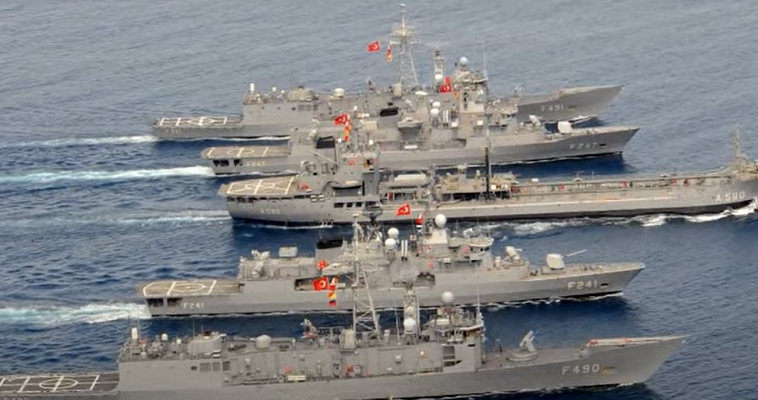Is Greece ready for a war with Turkey?
22/07/2020
The question “Will there be a war with Turkey?” has been frequently debated in Greece lately. The answer is not simple. Personally, I believe that the possibility of a war is less likely that something that will lead to a painful compromise of Greek national interests. But no one can rule out the possibility of a military conflict.
Has Greek society prepared for such a scenario? How ready are we for that? We will attempt an answer through common elements and parallels between the Greece of today and the period before the fall of Constantinople (which marks the end of the Byzantine Empire and the historical course of Hellenism). Remember that historical memory is a key element of national survival.
A characteristic element before the fall of the city was the deep social decline and the self absorption of the inhabitants. The fiscal crisis and the crisis of values that Greece is going through today, is similar to that of the Byzantine era. Even in the last hours before the fall of the city, when the walls had been torn down by the bombardment and needed immediate repair, the citizens were not even persuaded to provide the necessary materials and labor if they were not paid first.
Today, Turkey has engaged in a huge armaments program and threatens Greece verbally on a daily basis, or provokes Greece through operational activities. On the other hand, in Greece the fiscal crisis and the continuous reductions of the defense budget of the last years, have started to affect its military power and threatens to a great extent the combat readiness of its Armed Forces.
Nevertheless, donations, such as the recent one in the Navy of the shipowner Panagiotis Laskaridis, are rare phenomena. What we have experienced over the past decades has been populism and corruption. We have reached the point where the decision to procure weapons systems is taken with the criterion of the amount of “kickbacks” and not their suitability for meeting national needs.
Lack of national solidarity
Before the fall of Constantinople, due to internal disagreements and conflicts among the elites, the prevailing situation is demonstrated by the phrase attributed to Lucas Notaras, merchant and shipowner with bank accounts in Venice and Genoa: “Βetter to see in the middle of the city the fez of the Turks, rather than the Latin head covering”.
In today’s Greece and while all the signs foreshadow a crisis with Turkey, what is observed is the lack of national solidarity and strategy for dealing with the neo-Ottoman visions of the Turkish president. What prevails in public debate is scandal and laying blaming on others.
Before the fall of Constantinople, a strong anti-military spirit had been developed by politicians and scholars of the time. The consequence of this was measures to reduce military spending, which contributed to the dismantling of the Armed Forces (army and fleet) of the empire. They stopped giving land to the border guards.
Their estates, which until then were tax-free, went into taxation and they were in danger of losing them, or becoming slaves of the powerful for their debts. That is why many sold them, redeemed their military service and sought better fortune in the cities. Many young people tried to avoid conscription and sought sanctuary in monasteries. There was a lack of interest in defense and a social aversion to war.
The reduction of military service
In today’s Greece, the question: “What do you want, war with Turkey?”, Is constantly repeated in public discourse. During the crisis years, about 700,000 young people chose to leave the country and seek their fortune abroad. A percentage of them will choose to disobey the draft and remain abroad. The number of exempt from military service (health reasons, disobedience), amounts to 10,000 to 12,000 per year, ie the strength of an army division.
One wonders if 12% of the Greek youth are disabled and incapable of military service. The term of service is constantly decreasing. At the end of the 20th century it ranged up to 2 years or more, until the period 2000-2004 where there was a large decrease from 24 to 18 and finally 12 months. This trend continued until 2009, when the term reached nine months.
These reductions were not made on the basis of operational evaluation, but due to petty political expediencies. The short service time of conscripts and their assignment to extra-military tasks resulted in the creation of an untrained reserve, a reserve which is a vital national operational asset in preparing for war.
Despite the fact that the issue has been known to successive political leaderships, none has chosen to bear the political costs for a decision that would provide for an increase in the term. The concept of political cost refers to the loss of a party’s electoral percentages, ie the non-acceptance of this decision by a society that has not realized the danger facing the nation.
Preceding the fall of Constantinople, there was the indifference and procrastination of the Byzantine Empire to deal with the Ottoman problem, which resembles the strategy of appeasement and complacency applied by Greece for many years to the revisionism of today’s Turkey. From the above, one can draw conclusions and answer the question: “Are we ready for a war with Turkey?”





